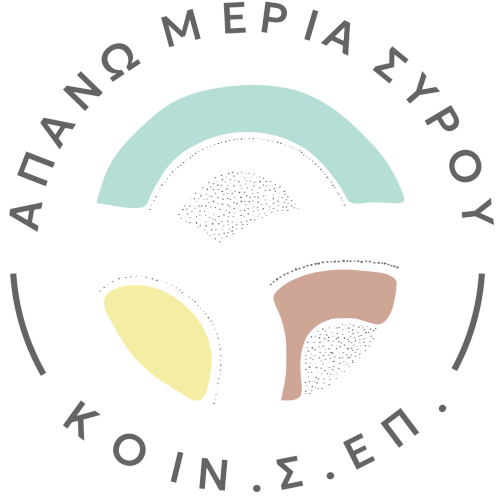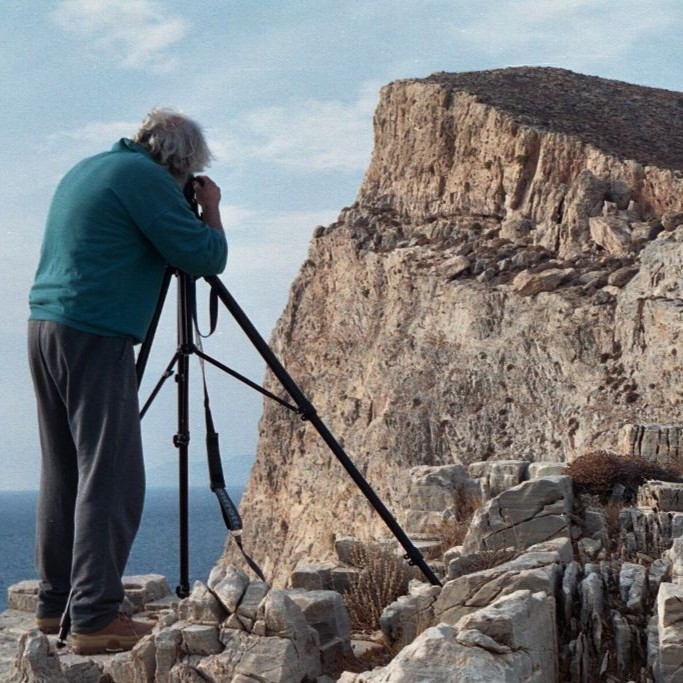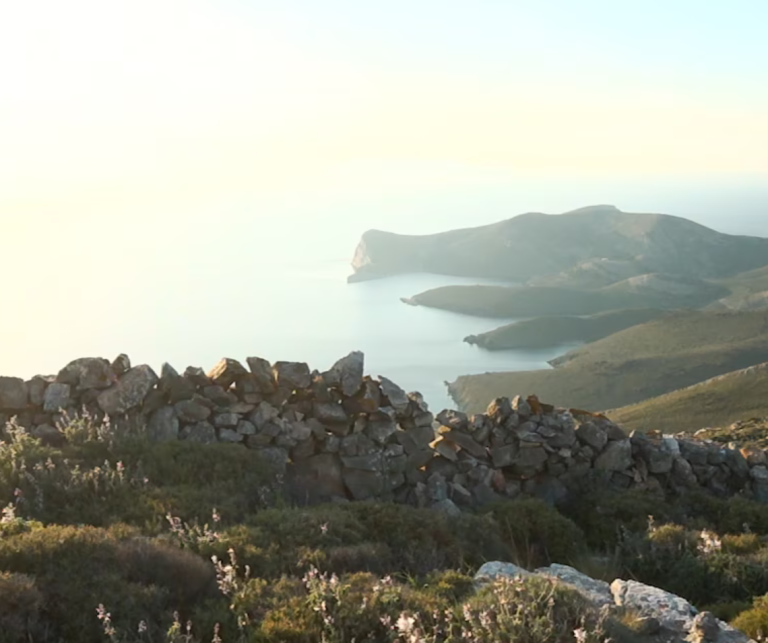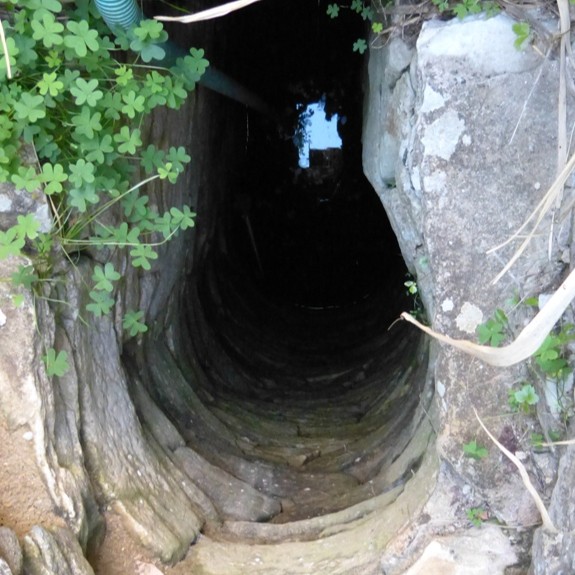The idea of resilience
by Spyros Bofylatos
Each island of the Cyclades has a distinct identity. Geography, climate and tradition create different places within a stone’s throw of each other. Syros is in a permanent flux, with contradictions characterizing it more than anything else. One of these contradictions – that between the developed lower side and the primitive upper side – was the trigger for the emergence of an initiative that for years had been dwelling in the collective subconscious. An opportunity to chart another path. For two years now, through continuous open assemblies, Syros citizens have been discussing, acting and preparing for an alternative development project, different from the bankrupt model of unrestrained tourism. Opposition to proposals that aim to destroy the natural environment was the root cause of the group. From this very first meeting, the idea emerged that in order not to destroy the island by a development that has no end, that has no limits, a way of mild development should be found that respects the island’s carrying capacity and does not create structures that would, in the long run, compromise the natural and artificial environment. The creation of authentic, quality products improves everyday life and has the potential to attract alternative tourism. That is, visitors with respect for the island’s character, landscape and history.
Since then, meetings – now with many more participants – have been held regularly in the University’s auditorium. The conversation revolves around the question of how to engage residents and further cultivate the vast wealth of Apano Meria. These treasures take many forms with some being the traditional arid crops, the geological and archaeological treasures of the island, the highest biodiversity in Europe. For all these reasons, a Social Cooperative Enterprise has been created, with the aim of becoming the central pillar around which groups of people who share the above dreams will be organized.
SCE Apano Meria Syros aims to create jobs for unemployed and young people, in the spirit of protecting and preserving a unique island region and its development in terms of sustainability and degrowth. This will be done through the stimulation of the agricultural production of Apano Meria (agriculture, beekeeping, viticulture, livestock farming) and the cultivation of the idea of alternative and quality tourism in the area (educational, nature, hiking, archaeological, geological, etc.) that will be year-round and will enhance rather than diminish the richness of the region. A central concept for the group is the idea of resilience. Resilience is defined as the ability of a system to maintain its internal cohesion while absorbing external shocks. A key strategy for maximizing resilience is to increase its diversity and complexity. For example, an acre of Apano Meria’s wild-shrub ecosystem has about a hundred different species of flora, while a field has a single species. The appearance of an organism that destroys a species is not a risk in the case of the Apano Meria ecosystem, but is a definite disaster in the case of the monoculture system. Like nature, human systems can be inspired by the coexistence of different species and, through biomimicry, design services and joint actions that are resilient and ready to cope with external shocks.
Viewing creative communities as an interconnected ecosystem rather than distinct systems provides a different way to increase their resilience and capacity to flourish, creating positive feedback within a wider ecosystem of bottom-up initiatives both locally and globally. The structure of the group that envisions a protected Apano Meria is that of a meta-group, i.e. a group of groups. At first glance, three main themes appear: environment, culture and people. Each of these thematic areas consists of different groups of special interest, which are interconnected both in their subject matter and in the wider field of the community.
For example, in the context of the environment, different groups of people are working on fauna and flora, while a different group is looking at marine ecology issues. In addition, a different community is studying the unique geological features of the island. All these groups are in open dialogue with each other and with the central organising team. Understanding information flows, matching people in different roles and increasing the overall diffuse planning capacity of the participants in the social enterprise is the first step in creating a resilient organisation. The central step in this effort is the inclusion of Apano Meria in the UNESCO programme with the distinctive title “Global Geoparks”. This effort needs to be accepted and embraced by the entire society of Syros. The Geopark project includes many different sub-programmes involving the restoration of trails leading to sites of geological interest, the creation of a Geological Exhibition and other infrastructure supporting the Geopark. All citizens who have embraced the vision of the Syros Geopark are also working to collaborate with the South Aegean Region, the Decentralized Administration and all the important institutions of the island. Under the roof of the Geopark, then, there are not only stones but also plants, animals, people, traditions and archaeological finds. There is a wealth that surpasses any fleeting profit that a competitive tourism product can offer.
The effort is not limited and does not end with the development of the geological park. Actions have already been taken to strengthen a model of agricultural production based on synergies between producers that incorporates all of the above. The whole project is intended to be a beacon to show that there is more than one way to achieve our goals. We can protect, cultivate and reap the fruits of our labours without compromising the conditions that made their creation possible. At the core of this process is a choice about what kind of future we want. Do we want metal monster ships that spew bracelets for a few hours and huge blocks of concrete that violate the landscape, or a diverse, human development with wooden boats and whitewashed houses nestled in the Cycladic landscape? For those for whom the answer is the latter, there is ground to work together and achieve that future of wealth.
*Spyros Bofylatos is a professor of the University of the Aegean and a founding member of the movement for the promotion of Apano Meria



